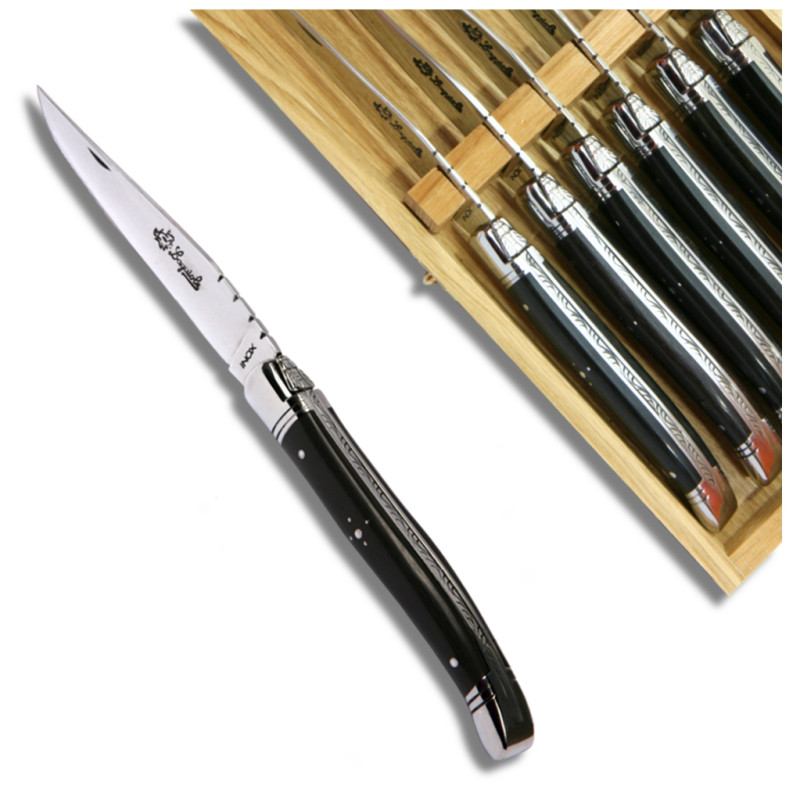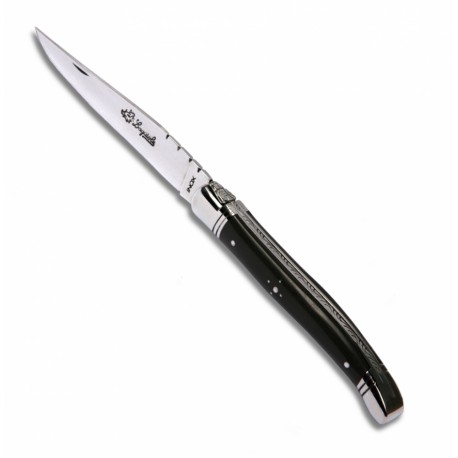








Product customization
Don't forget to save your customization to be able to add to cart
These steak knives and their components come with a 2-year guarantee.
We deliver all over the world.
We will provide you with a return label within 30 days if this product does not suit you.
These knives can be re-sharpened by us at any time during their service life.
These forks are delivered with a certificate of origin attesting to their provenance.
Ebony has been used from time immemorial. It has been found, for example in the tombs of Ancient Egypt.
Towards the end of the 16th century, it was used for small precious objects, such as finely worked gift boxes for the luxury industry. Due to the high density and hardness of this wood, it was also used for making panels and bas reliefs for decorating places of worship or rich houses.
After the Renaissance, ebony was considered one of the most precious commodities that could be carried on the seas. In French, the term derives from the word for cabinetmaker known as the ‘ébéniste’.
Its fine glittery texture, due to the formation of oxalic acid crystals, give it an unusual and unique sparkling appearance. It comes polished, very smooth, matt or glossy, and is the precious material of choice for making statues, valuable decorative objects and, of course, knife handles.
Ebony grows in mountain forests, at a low altitude, on relatively poor soil and in high temperatures.
Ebony is found in Madagascar, Gabon and India.

You might also like

check_circle
check_circle